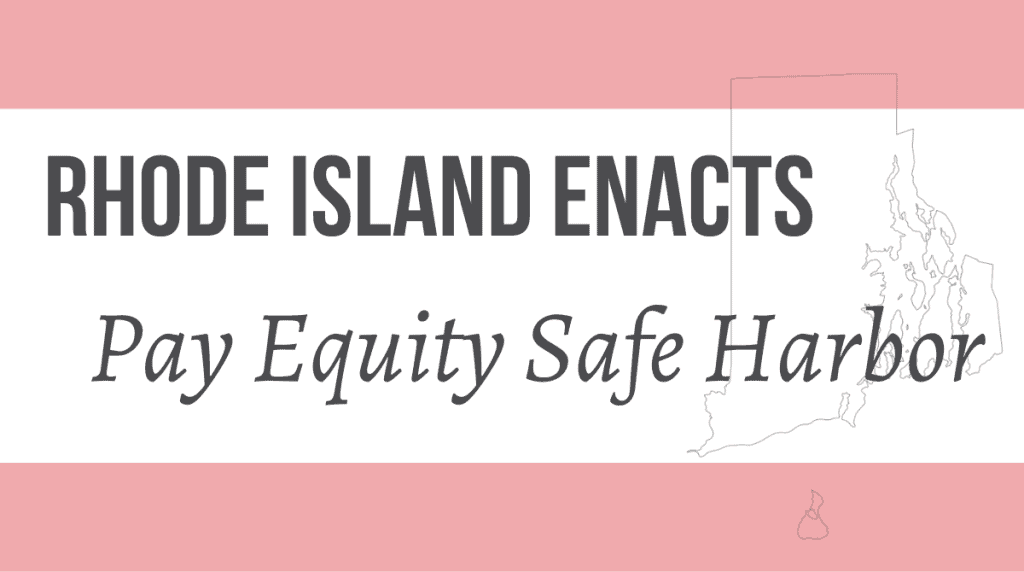
Posted July 18th, 2023 in Legal Insights with Tags The Equal Pay Advisor
Rhode Island Enacts Pay Equity Safe Harbor
We previously reported that several states have enacted safe harbors for employers who proactively audit their pay practices and remediate any observed equal pay violations. Now Rhode Island has joined the fray.
The state’s new pay equity law, which became effective on January 1 of this year, provides that that an employer has an affirmative defense to all liability if it meets the following two conditions:
- The employer has conducted a good faith self-evaluation of its pay practices within 2 years of the commencement of the lawsuit.
- The employer can demonstrate that any pay inequities unearthed by the self-evaluation have been eliminated.
To satisfy the first condition, the self-evaluation must be performed with “due diligence” and must be “reasonable in scope and detail.” Some of the factors courts must rely on when deciding whether the first condition is met include: whether the self-evaluation includes all relevant jobs and employees within those jobs; whether the employer used a consistent, objective approach; and whether the self-evaluation is reasonably sophisticated in its analysis of potentially comparable work, compensation, and application of permissible reasons for pay disparities. Each employer’s unique circumstances will be given due consideration. For instance a small business with few job categories can rely on a more limited self-evaluation than a larger company with complex workforce architecture. If the employer fails to retain the records necessary to show how it applied these factors, it may give rise to an inference that the employer did not exercise enough diligence.
To satisfy the second condition, remediation must be complete and total. Thus individuals who were unlawfully paid less than their comparators must be raised to the status of the highest paid comparator. A employer may not reduce anyone’s wages solely to comply with the law. Further, the employer has no more than 90 days from the date it completed the self-evaluation to adjust wages as needed.
Notably, the safe harbor acts as a complete defense to liability only through June 30, 2026. Thereafter, meeting the two conditions listed above will inoculate the employer against having to pay compensatory or liquidated damages only. That is, the employer may still be liable for the unpaid wages.
In light of the foregoing, Rhode Island employers would do well to conduct a pay equity analysis now. Should an employer choose to do so, we generally recommend a two-path approach. The first path involves relying on outside counsel to conduct a privileged self-audit for the purpose of assessing legal risk. Based on the results of that privileged self-evaluation, the employer can identify if there are areas where it has risk but may be able to take advantage of a safe harbor. Then, under the second path, the employer can engage a formal safe harbor self-evaluation for the identified areas, with the understanding that these results and related materials will likely become public—or may, at the very least, need to be provided to the court in order to show it has met both safe harbor conditions.